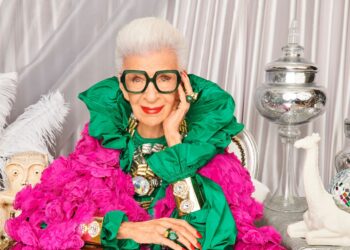The color of the medal mattered, not the color of his skin.
All Shani Davis was thinking about was gold.
With a furious kick on the final lap Wednesday, Davis stuck his skate across the line and won his second straight Olympic title in 1,000-meter speedskating, the first skater to win this event twice at the Winter Games.
“That race depleted me 100 percent,” he said. “I never want to leave anything on the track.”
No worries there.
The Americans broke their medal drought at the Richmond Olympic Oval with a flourish, claiming two spots on the podium. Chad Hedrick, who won three medals at the 2006 games, took a surprising bronze after struggling to regain his motivation in the wake of Italy.
“I had to dig down deep and find my passion for speedskating again,” the Texan said.
Davis dug deep on his final lap, knowing he needed a little more speed to catch South Korea’s Mo Tae-bum. The American world-record holder swung both arms twice before leaning into the final turn, giving him just enough of a boost for a time of 1 minute, 8.94 seconds.
Mo, who won gold in the 500 two days ago, settled for silver this time, 18-hundreths behind Davis. Hedrick was next in 1:09.32.
“Those last 200, 300 meters were very difficult,” said Davis, who usually leaves his left arm on his back until the last straightaway. “I was just trying to carry my speed. I could feel it leaving me. It doesn’t matter what it looks like, just as long as you get across the line as quick as you could.”
When he won this race four years ago, Davis became the first African-American athlete to win an individual gold at the Winter Games. This time, he simply wanted to be known for his skating.
“When you’re a world champion or an Olympic champion, you get this little thing on your back called a target,” Davis said. “To go out there and win the 1,000 meters twice is truly amazing.”
Davis pumped his fist in the air and slapped hands with the U.S. coaches on the backstretch. Then, as he coasted around near the finish line, Hedrick skated over to shake his hand firmly and pat him on the back several times.
Their accomplishments in 2006 — Davis won a gold and silver; Hedrick a medal of each color — were overshadowed by a nasty feud stemming from the team pursuit. Davis wanted to stick with his individual events, a decision that peeved Hedrick, who believed it cost the Americans a shot at a medal.
Their animosity boiled over at a news conference after the 1,500, in which Davis finished second and Hedrick third. Hedrick brought up the team pursuit, and Davis stormed out of the room complaining that Hedrick didn’t congratulate him on his gold, only the silver.
No hard feelings this time.
“All that stuff that was done before, man, that is old news,” Hedrick said. “I just hope people will look at us in a different light and think, man, those guys are good athletes, rather than wondering who wants to fight with who.”
The two stood together on the victory stand, each holding one end of an American flag.
“Him and I getting together and carrying the American flag, I think that shows that, you know what, people misread us,” Hedrick said. “We just want to win.”
For Davis, these games have been so much more enjoyable than his last two Olympics. In 2002, he was accused of benefiting from a fixed race to get on the short track team as an alternate and in Turin, the dispute with Hedrick certainly rubbed him the wrong way.
“It is my moment. It is my party,” Davis said. “I can celebrate. I can dance. I can do whatever I want. I earned it.”
Mo held up two fingers, representing both his finish and his total haul from these games. South Korea extended its impressive showing with two golds and two silvers in the first five events.
“I could have done better,” Mo said through a translator. “Shani had the greater technique in turning the corners.”
Skating in the same pair with Mo, Hedrick nearly clipped a lane marker in the first turn and appeared to lose valuable time, but he’s always been a strong finisher. Amazingly, he nearly caught the fading Korean at the line.
That turned out to be good enough for bronze, giving Hedrick medals in four different Olympic events, a range that surely makes the former inline champion one of the most versatile skaters in U.S. history.
Davis is carving out quite a legacy for himself, too.
He became just the third American male to win more than one speedskating gold medal, joining Eric Heiden (five at the 1980 Lake Placid Games) and Irving Jaffee (two golds at the ‘32 Games, also in Lake Placid).
Lee Kyou-hyuk, a 31-year-old from South Korea skating in his fifth Olympics, hasn’t been able to win a medal of any color. He again failed to make the podium, finishing ninth in 1:09.92.
The Americans put all four skaters in the top 10 after being shut out of the medals through the first four events. Nick Pearson was seventh in 1:09.79, while Trevor Marsicano took 10th in 1:10.11.
Maybe the U.S. team benefited from the Colbert bump.
Stephen Colbert, who stepped in to sponsor the team with fan donations after the American program lost their main benefactor, made his first appearance at the oval in suburban Vancouver. The faux talk-show host met with several skaters before the event, wearing a red coat with “Assistant Sports Psychologist” emblazoned on the back.
Then he watched the U.S. claim its first two medals on the long track.
Next up for the men is Saturday’s 1,500, a race in which Davis holds the world record but could get a strong challenge from Hedrick, the only skater to beat him at that distance during the World Cup season.
“With me not having as good of a start, I have to pretty much focus on the 1,500,” Hedrick said. “This is a great sign for me, only losing by four-tenths in the 1,000 and knowing that Saturday is a longer race.”














